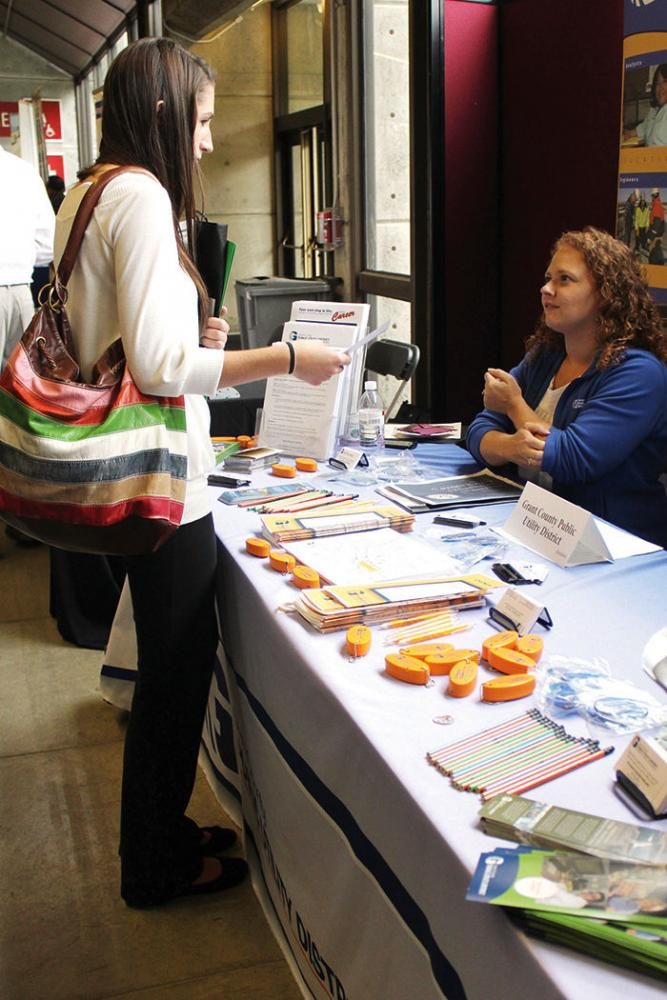Career Center needs to diversify its participants
February 28, 2017
There were more than 100 recruiters across industry-leading organizations represented at the Career Expo on Feb. 7, but undergraduates and students who attended looking to work while continuing their studies left unsatisfied.
The Academic Success and Career Center (ASCC) event’s focus was to assist students in connecting with employers. It was heavily marketed as an event for all students, but opportunities for undergraduates — especially freshmen or sophomores — could have been better represented.
Undergraduate students who attended were hoping to find something that could help them start paying their bills straightaway. To their dismay, recruiters at the Career Expo seemed more concerned with locating identification badges and holding back an involuntary frown when reading “freshman,” or “sophomore” printed next to the name.
The same can be said about opportunities for students in more obscure fields of study. One student expressed his discontent with the options available at the Expo.
“I didn’t expect too much,” freshman Arnav Iyer said. “My major is neuroscience and that is a very specific major. I would have been more satisfied if there were opportunities for jobs and internships in the healthcare field.”
Students in specialized majors, like Iyer, shouldn’t be left out of events designed to match them with employers. Perhaps more resources should be specifically allocated to supporting the expansion of opportunities for these fields of study that historically are not in the spotlight.
Existing resources, such as Couglink, can provide access to students for a great deal of job postings. However, it leaves much to be desired. Often, the job postings on Couglink aren’t actually local opportunities — but opportunities from all around Washington.
This is great for students looking to work over breaks from school or after they graduate, but not as much for students who need to be able to pay their bills as they attend school.
Couglink is usually touted as the end-all-be-all for job searching on campus, but that sentiment isn’t as accurate as administrators might like to think it is. Fortunately, there are ways that students can directly provide feedback to the ASCC in order to see changes for resources like Couglink or the Career Expo.
Assistant Director at the ASCC Christie Motley expressed her desire to encourage students to send criticisms via email to improve their operations.
“Getting freshman and sophomore students involved and giving them the confidence to seek out resources available to them [is a priority],” she said.
Students should follow through and provide feedback to the ASCC to ensure future events have a variety of employers with a willingness to hire undergraduates and recruit more students from obscure fields of study.
Moreover, the ASCC and Student Employment Center should consider advertising the Career Expo event specifically to upperclassmen in the future, rather than as an event for all students seeking employment. They should also expand and increase the frequency of similar events such as the Student Employment Job Fair during the Week of Welcome.
There shouldn’t be a need for students to jump through hoops to find a job on campus, especially if there are supposedly resources advertised to streamline that process.
Josh Maasberg is a sophomore political science major from Murrieta, California. He can be contacted at 335-2290 or by [email protected]. The opinions expressed in this column are not necessarily those of the staff of The Daily Evergreen or those of The Office of Student Media.



















